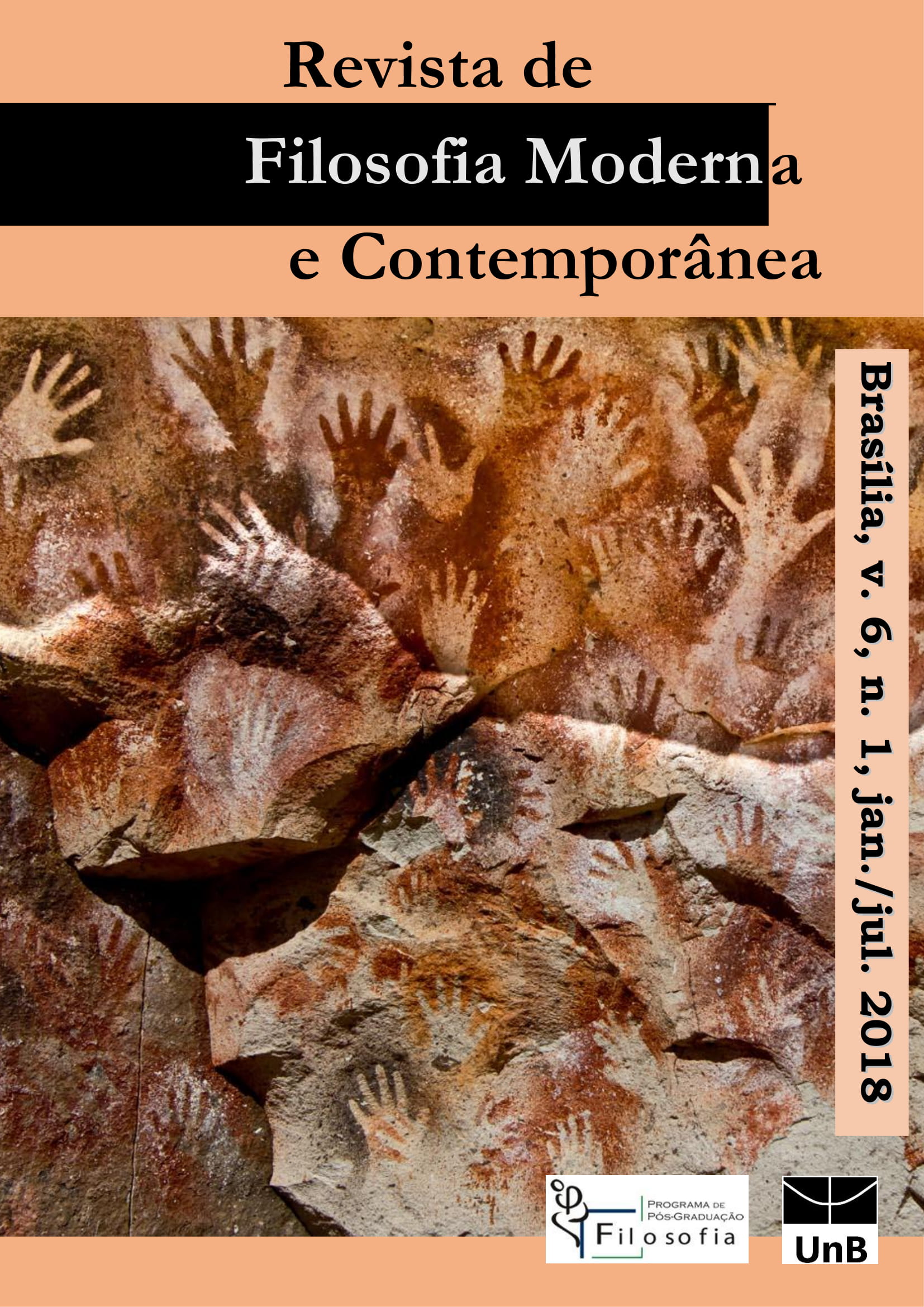Breve História da Inércia-I: o problema do movimento de Aristóteles a Copérnico
DOI:
https://doi.org/10.26512/rfmc.v6i1.20409Keywords:
Motion, Inertia. Aristotelianism. Image of Nature.Abstract
Nesse trabalho, examinaremos os estudos sobre o movimento, entendido como translação, ou deslocamento, desde as análises de Aristóteles, passando pelas críticas feitas no período medieval ao aristotelismo, culminando com o trabalho de Nicolau Copérnico, que aprimora a noção de movimento relativo. Se, por um lado, Copérnico prepara o terreno para os estudos de Pierre Gassendi, René Descartes e Galileu Galilei sobre a noção de inércia, por outro lado, ainda mantém certa imagem de natureza com elementos aristotélicos.
Downloads
References
ABRANTES, P. Imagens de Natureza, Imagens de Ciência. 2 edição-revista e ampliada. Rio de Janeiro: Editora da UERJ, 2016.
APPLEBAUM, Wilbur. Encyclopedia of the Scientific Revolution from Copernicus to Newton. New York: Garland Publishing, Inc. 2000.
ARISTOTLE. The Complete Works of Aristotle. The Revised Oxford Translation. Edited by J. BARNES. Vol. 1 and 2. Princeton UP, 1991.
ARISTOTE. Du ciel. Texte établi et traduit par Paul MORAUX. Paris: Les Belles Lettres, 1965.
BERTOLDO, Leandro. Teoria do Ãmpeto. Rio de Janeiro: Litteris Editora, 2004.
CLAGETT, Marshall. The Science of Mechanics in the Middle Ages. London: Oxford University Press, 1961.
COPÉRNICO, Nicolau. As Revoluções dos Orbes Celestes. Tradução de A. Dias Gomes e Gabriel Domingues. Coimbra, Portugal: Fundação Calouste Gulbenkian, 1984.
COPERNICUS, Nicolaus. On the Revolutions of the Heavenly Spheres. Chicago: University of Chicago, 1952.
COHEN, Morris and DRABKIN, I. E. A Source Book in Greek Science. New York: McGraw-Hill Book Company, 1948.
CROMBIE, A.C. Augustine To Galileo-The History of Science A.D. 400- 1650. Cambridge: Harvard University Press, 1953.
CROWE, M.J. Theories of the World from Antiquity to the Copernican Revolution. New York: Dover, 1990.
CUSTÓDIO, Márcio Augusto Damin. Matemática e Filosofia da Natureza
no Século XIV: Thomas Bradwardine. Tese de Doutorado em Filosofia. Campinas: Universidade Estadual de Campinas, 2004.
DUHEM, Pierre. Le système du monde-histoire des doctrines cosmologiques de Platon à Copernicic. Vol I-X, Paris: Librarie Scientific A. Herman et Fils, 1913-1959.
ÉVORA, Fátima. A revolução copernicano-galileana. Vol. I ”“ Astronomia e cosmologia pré-galileana. 2ª ed. Campinas: UNICAMP, 1993.
ÉVORA, Fátima. A Origem do Conceito do Impetus in: Cadernos de História e Filosofia da Ciência, Campinas, Série 3, v. 5, n. 1-2, p. 281-305, 1995a.
ÉVORA, Fátima. Philoponos e Avempace: a origem do argumento galileano sobre o vazio in: ÉVORA (Ed.) Espaço e Tempo. Campinas: UNICAMP, p. 69-89, 1995b.
ÉVORA, Fátima. Natureza em Movimento: um estudo da física e da cosmologia aristotélicas in: Cadernos de História e Filosofia da Ciência, Campinas, Série 3, v. 15, n. 1, p. 127-170, 2005.
GILSON, Étienne. A filosofia na Idade Média. 2ª ed. Tradução de Eduardo Brandão. São Paulo: Martins Fontes, 2007.
HOLTON, Gerald and BRUSH, Stephen. Physics, the Human Adventure From Copernicus to Einstein and Beyond. New Brunswick: Rutgers University Press, 2005.
JAMMER, MAX. Concepts of Force. New York: Dover Publications, 1999.
INFELD, Leopold. From Copernicus to Einstein, in: BIENKOWSKA, Barbara (ed.). The Scientific Word of Copernicus. On the Occasion of the 500th Anniversary of his Birth 1473-1973. Boston: D. Reidel Publishing Company, 1973.
KOYRÉ, Alexandre. From the Closed World to the Infinite Universe. Baltimore: The Johns Hopinks Press, 1957.
KOYRÉ, Alexandre. Études Galiléennes. Paris: Herman, 1966.
KUHN, Thomas Samuel. The Copernican Revolution: Planetary Astronomy in the Development of Western Thought. Cambridge, MA: Harvard University Press, 1985.
PELLEGRIN, Pierre. Vocabulário de Aristóteles. 1ª ed. Tradução de Claudia Berliner. São Paulo: Editora WMF Martins Fontes, 2010 (Coleção vocabulário dos filósofos).
PETERS, F.E.. Greek Philosophical Terms. A historical lexion. New York: New York University Press, 1967.
POLITO, Antony M. M. Galileu, Descartes e uma Breve História do Princípio de Inércia, Physicae Organum, vol.1, nº 1, 2015, p. 1-23.
REICHENBACH, Hans. From Copernicus to Einstein. New York: Philosophical Library, 1942
RONAN, Colin A. The Cambdrige Illustrated History of the World’s Science. Cambridge: Cambridge University Press, 1983.
STEENBERGHEN, F. Van. História da Filosofia (Período Cristão). Tradução de J. M. da Cruz Pontes. Lisboa, Portugal: Gradiva, 1984 (Colecção Trajectos).
WALLIS, Charles Glenn. "Introduction, Symbols and Abbreviations, and a Short Bibliography to Copernicus and Kepler", p. 481-495, in: Copernicus, 1952.
Downloads
Published
How to Cite
Issue
Section
License
Copyright for articles published in this journal is retained by the authors, with first publication rights granted to the journal. By virtue of their appearance in this open access journal, articles are free to use, with proper attribution, in educational and other non-commercial settings.


